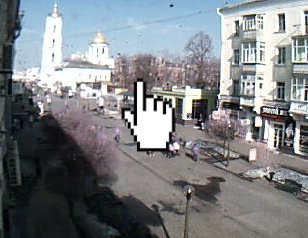Moldova
The Republic of Moldova is situated in South Eastern Europe between Romania (in the west) and Ukraine (in the north, east and south). It is the second smallest member of the Commonwealth of Independent States (former Soviet Union republic). Total area is 33 846 square kilometers. In the north and east Moldova borders on Ukraine and in the West it borders on Romania. The climate is temperate continental. It’s rich in such mineral resources as lignite, phosphorites, gypsum, arable land, limestone. Land use consists in:
- agricultural lands – 58%;
- forest – 13%;
- populated area – 9%;
- other – 20%
The capital is Chisinau. The largest cities are Chisinau (785,218), Tiraspol (158,069), Balti (148,561). Form of government is republic. Moldova has been an independent State since August 27, 1991 following the collapse of the Soviet Union. The population is 3,56 million. Around 45% of the population live in cities. National currency is ley (MDL).
Economy
Since 2000 – following a decade of economic decline – Moldova has achieved and maintained macroeconomic stability. Inflation decreased from average 11,1 % in the past four years to 0,4 % in 2009. Without prejudice to importance of big enterprises in Moldova one should note the specific role of small business which development is promoted by existing sectoral structure of economy.The government’s economic stabilization and structural reform programmes have made several notable and positive achievements:
- The privatization programme has been successfully completed;
- The foreign trade sector has been privatized and liberalized;
- Monetary stability has been achieved;
- Full current account currency convertibility has been introduced;
- National accounting and audit standards based on international standards have been implemented;
- The banking system has been privatized and streamlined;
- The process of land privatization has been successfully completed;
European Bank of Reconstruction and Development (EBRD) raised the forecast of gross domestic product (GDP) in Moldova in 2011 from 3,5% to 4,5% and following the results of 2010 from 4,5% to 6,5%. It is noted in EBRD that economy of Moldova continues to recover after the crisis.Moldova is a member of:
- The World Trade Organization;
- The Commonwealth of Independent States;
- The Council of Europe;
- The European Bank of Reconstruction and Development;
- The International Monetary Fund;
- The World Bank and its structures;
- Stability Pact in Southwest Europe.
The World Trade Organization (WTO)From 2001 the Republic of Moldova is a full-fledged member of WTO which allowed to provide development of foreign trade and to apply international standards in production process. Crediting by the World bank from 1992 provided consecutive support of economic programme of state reform comprising orientation on lending policy, industry and infrastructure, support of financial and private sector, agriculture, development of human capacity and environment.In the Republic of Moldova free trade regime is in force. For the moment Free Trade Agreements are signed with CIS countries and Eastern Europe (Romania, Croatia, Serbia, Macedonia, Bosnia and Herzegovina, Albania, Bulgaria). Moldova also concluded 36 bilateral agreements concerning mutual promotion and protection of investments. From March 2008 the Republic of Moldova takes advantage of preferential economic regime with European Union. The Republic of Moldova is a part of European Free Trade Association (EFTA), which provides access without customs duty to Southeastern European market for goods originated from countries-members of the agreement.
Sales and investment conditions
The aim of Moldova is to provide a transparent and supportive business environment. The Constitution of the country guarantees the inviolability of both foreign and domestic investors by incorporating principles protecting the supremacy of international law, the market economy, private property, provisions against unjust expropriation, provisions against confiscation of property. On November 28, 1994 Moldova signed and ratified the Partnership and Cooperation Agreement with the European Union (EU) , and in 2005 it signed the Plan of Action with the European Union which provides strengthening security, improving political, economic and cultural relations, reinforcing of cross -border cooperation; and establishing joint responsibility regarding the prevention and settlement of conflicts.Zones of free enterprises. Industrial parks. In Moldova zones of free enterprises function, which are economically separate, strictly limited along the perimeter by parts of customs territory of the Republic of Moldova, where domestic and foreign investors are allowed to have kinds of entrepreneurial activity on favourable terms according to the law.There are some zones of free enterprises and zones of similar regime in Moldova:
- Expo-Business Chisinau (in the capital Chisinau);
- Ungheni-Business (in 107 km to the Northeast from the capital);
- Tvardita ( in 115 km to the South from the capital);
- Otaci-Business (in 220 km to the North from the capital);
- Valcanes (in 200 km to the Southeast from the capital);
- Taraclia (in 153 km to the South of the country);
- International Free Port Giurgiulesti (in 210 km to the South of the capital);
- International Free Airport “Marculesti” (in 126 km to the North from the capital).
In Moldova a new Free economic zone “Beltsi” specializing in production of export-oriented goods, foreign trade activity is going to be created.The following types of activity could be done in a free zone:
- industrial production of export-oriented goods except for ethyl alcohol;
- sorting, packing, marking and other similar procedures concerning goods forwarded in transit through customs territory of the Republic of Moldova;
- foreign trade activity – wholesale of goods imported to a free trade zone beyond the boundaries of customs zone of Moldova and delivery for export;
- transport activity – transportation of imported and exported goods through a free trade zone by air or sea.
- Zones of free entrepreneurship in Moldova offer to investors:
- state legal defense of investments on the territory of zones of free entrepreneurship;
- possibility of income transfer abroad;
- cheap and qualified labour resources;
- possibility of usage of existing infrastructure;
- preferential regimes of encouragement of entrepreneurial activity;
- relief from import duty and duty on non – use of instruments of policy in case of foreign or domestic goods import to zones of free entrepreneurship;
- non-use of allocation regime and licensing of goods (services) import and export;
- regime of free movement of goods and services which are in zones of free entrepreneurship;
- special tax regime and etc.
Industrial park is a limited territory, where economic activity, industrial production and delivery of services, development of the results of research and/or technological developments are carried out in the regime of special privileges for the purpose of use of human and material resources of separate region. Tax advantages provided for zones of free entrepreneurship are also practiced for industrial parks. Three zones are determined to allocate industrial parks: industrial park Floresti ( 60 ha near the Ukrainian border), Ungheni (50 ha near the border of Rumania) and Cainari (23 ha).
Infrastructure Air traffic Domestic airlines:
Air Moldova, Air Moldova International, Moldavian AirlinesForeign airlines: Tarom, Transaero, Tyrolean Airways, Turkish Airlines, Carpatair, Austrian Airlines, airBaltic, Meridiana, S7 Airlines, Tandem Aero, Siberian Airlines, MalevRailway traffic: railway system comprises 1111 km and is connected with railway system of CIS countries, Russia, Ukraine and Romania.Highway service: network of highways comprises 9642 km. Roads of international importance go through Moldova.Water connection: port Giurgiulesti which is a part of 7 international transport corridor and corridor TRASECA, which connects Europe, Caucasus and Asia.Perceived priority sector of economy is agro-industrial complex which is based on agricultural proceeding and food production and beverage industry.Moldova has unusual resources which are highly favourable to agricultural production. Fertile black soil is ideal for growing corn, fruit and vegetables. Because of its geographic location the country enjoys a moderate continental climate, so that the early crops can be grown, giving producers a strong competitive advantage.Branches of industry of Moldova
1). based on the local raw material base:
- food processing industry (wine, canning, sugar, tobacco, flour-and-cereals, fat-and-oil, confectionery) is 43,5% of industrial output and more than 2/3 of export and is based on domestic raw materials.
- perfume and toiletry industry (conditionally as the best part of range of raw materials was imported;
- construction materials producing industry (production on the base of gypsum, production of cement, walling, binding and heat insulating materials, ceramics);
- light industry (leather, footwear, fur industries are also taken conditionally as the best part of range of raw materials needed for footwear and fur production was imported);
- pharmaceutical industry is also taken conditionally as the best part of range of raw materials was imported;
- local industry and artistic trades.
2) Knowledge-intensive, little material-intensive and labour-intensive industries working on imported raw materials:
- machinery-producing industry (manufacture of tractors and agricultural vehicles, manufacturing equipment for food processing industry, pumps, machining stations, industrial cold-storage plants, including container, radio electronics, devices and means of automation, production for military-industrial complex, medical equipment, domestic electronic equipment and electrical goods – TV sets, refrigerators and freezing plants, washing machines);
- light industry (production of textiles, knit-wear, garments, carpets, haberdashery, artificial leather and fabricated rubber products);
- furniture industry;
- chemical industry which includes imported raw material and semifinished product processing enterprises (polymer resins and powders, fabricated rubber products, detergents, dyestuffs and varnishes).
- packaging materials.
Moldova is the fourth largest exporter of shelled walnuts in the world after the USA, Mexico and China. Moldova’s honey production varies from 2,000 to 2,500 tons annually.The sugar industry in Moldova comprises two branches: sugar beet producers and nine sugar beet processing factories. The total processing capacity of the existing enterprises in this industry, considered for a period of 100 – 110 days is 2,9 -3,1 million tons of sugar beet and 350,000 – 370,000 tons of sugar.2/3 of agricultural production composes farming production. Wheat, sugar beet, tobacco, soy, potato, vegetables, grapes are grown. In overall production agricultural production of plant growing is 70% including grain crops 31%, grapes 10%, potato 7%, sunflower and vegetables 5%; a part of stock-raising is 30%. Cattle, pigs, sheep, goats, poultry are raised. Beekeeping and fishing industry are cultivated.Processing is one of the most important and attractive for investment categories. Equipment and technologies are required for storage, packaging and long distance transportation of fresh fruit; drying; instant freezing, canning and the production of ingredients and additives.Wine-growing is traditionally the most productive sector being very attractive for foreign investments. Moldova is one of the recognized countries-producers of wine. Moldavian wines have been awarded prizes at many international competitions. Favourable geographical location, climate and fertile soils provide development of wine making which is the main part of Moldavian economy, 18-20% of GDP. Moldova ranks the 10th in the world among producers and exporters of alcoholic beverages. Moldovan viticulture is characterized by a large variety of grapes , 90 % of which are from Europe.


